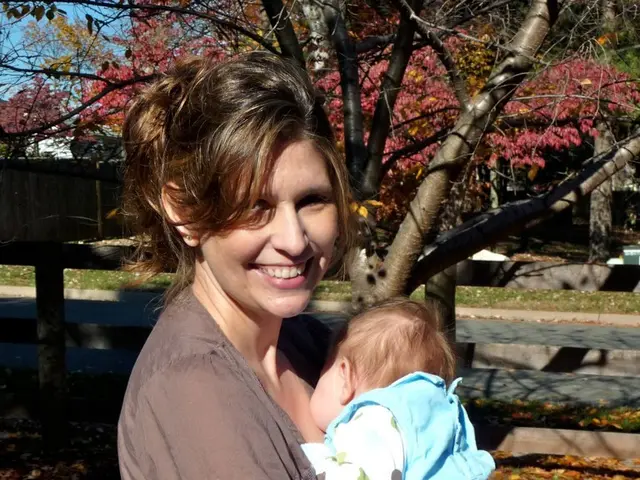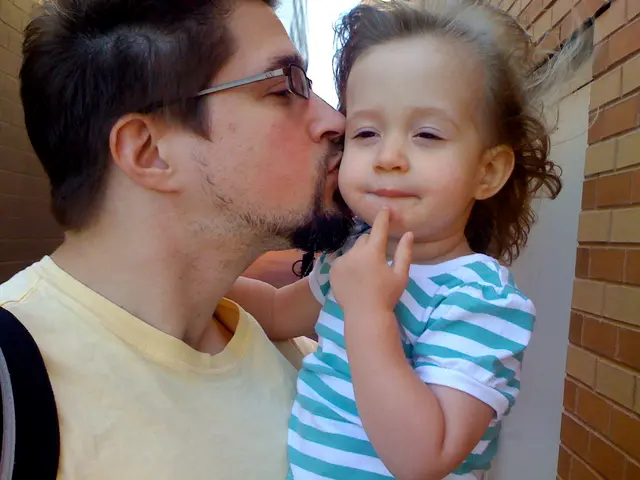Strategies for Efficiently addressing Childhood Anxiety:
As a parent, navigating childhood anxiety can be a challenge, but with the right strategies and support, you can help your child conquer their fears and thrive. Here's a fresh spin on how to help your anxious kid gain the upper hand and flourish in their daily life.
Childhood anxiety is common, with kids often feeling worried, scared, and uneasy about the unknown. Over-protecting your child might worsen their anxiety in the long run, so it's crucial to find a balance between supporting them and encouraging them to face their fears.
Embrace open communication:
- Foster a safe space where your children feel comfortable talking about their feelings without fear of judgment.
- Empathize and Validate: Acknowledge and validate your child's anxiety, letting them know that their feelings are real and understandable.
Teach coping mechanisms and self-help skills:
- Model Calm and Support: Demonstrate effective coping strategies and support your child in managing their anxiety.
- Incorporate Relaxation Techniques: Encourage deep breathing exercises, mindfulness, and progressive muscle relaxation to promote relaxation during anxious moments.
Encourage proactive behavior:
- Celebrate Bravery: Offer positive reinforcement and praise when your child faces anxiety-provoking situations or uses coping strategies.
- Gradual Exposure: Help your child systematically confront their fears and build confidence over time.
Consider professional help
- Early Intervention: Seek consultation from a mental health professional if anxiety significantly impacts your child's daily life and functioning.
- Tailored Treatment: Collaborate with experienced providers who have expertise in childhood anxiety disorders for personalized treatment recommendations.
Strengthen your support network:
- Connect with Others: Engage with support groups or networks of parents facing similar challenges to gather helpful insights and encouragement.
- Family Involvement: Involve family members in therapy sessions to strengthen relationships and improve communication.
Monitor and set limits:
- Screen Time Limitations: Limit excessive screen time and limit excessive screen time and social media use, which can impact anxiety and mental well-being.
- Promote Healthy Activities: Encourage physical activity, creative play, and social interaction to maintain a balanced lifestyle and support overall mental health.
When it comes to childhood anxiety, remember that your role as a parent is crucial. With empathy, practical coping skills, positive reinforcement, and timely professional support, you can empower your anxious child to grow stronger and overcome their fears.
- Embracing open communication and fostering a safe space can help children feel comfortable talking about their feelings without fear of judgment, promoting healthy friendships and social skills.
- By validating and empathizing with your child's anxiety and modeling calm and supportive behavior, you can teach them effective coping mechanisms and foster self-respect.
- Incorporating relaxation techniques like deep breathing exercises, mindfulness, and progressive muscle relaxation can help reduce anxiety levels and strengthen mental-health and wellness.
- Strengthening your support network by connecting with other parents going through similar challenges and involving family members in therapy sessions can lead to improved communication and relationships, benefiting both the child and the parents in terms of parenting and managing anxiety.








